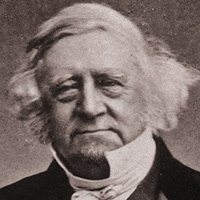The Four Ages of Poetry by Thomas Love Peacock: An Overview
Peacock sympathizes neoclassical critical principles and parodies Wordsworth's romantic ideas. The essay "The Four Ages of Poetry" deserves to be esteemed for its own witty insights and also because Shelley was impelled to write “Defense of Poetry” in reply to it. Peacock says everything that is artificial is anti-poetical. Peacock goes on to declare that poetry inevitably declined as the age of gold that made way to silver and then to brass.

Thomas Love Peacock
Peacock says that English poetry has passed through the Iron Age of chivalry and romance literature, the Golden Age of Shakespeare, the silver Age of Dryden and Pope, and has reached the Age of Brass, in which contemporary romantic poets have retreated into solitude and private meditation, distancing themselves from the most important aspects of the life of their time. Peacock attacks on the individual Romantic poets and by emphasizing that the Lake poets in general “wrote verses on a new principle” by remaining studiously ignorant of history, society, and human nature, by cultivating” the fancy at the expense of memory and reason, and by “seeing Nature” not “ as she was,” as they professed to do, but “only as she was not, converting the land they lived in into a sort of fairy-land, which they peopled with mysticisms and chimaeras” (513), consequently isolating themselves from the majority of readers and rendering their poetry an adornment to, rather than an influence on their society. He complains that the poetry of the Romantic era had divorced itself from praxis, and so become self-conscious and essentially useless.
The development of poetry passed through four ages according to Peacock. (i) Iron or Bardic Age in which society was in its infancy and poets were “the sole depositories of all the knowledge of their age” (509). (ii) Golden or Homeric Age in which poetry achieved perfection by synthesizing the primitive vitality and power of the Iron Age with new knowledge and technical skill. With the emergences of history, philosophy, or science the stature of poetry declined leading to (iii) Silver or Virgilian Age, when poetry was no longer supreme but derivative, consisting of good sense and learning conveyed in “a labored and somewhat monotonous harmony of expression …” (510). Finally, there is the (iv) Brass or Nonnic Age and ends in “the second childhood of poetry’ as poetry becomes self-conscious and pseudoarchaic (511). This age refers to the romantic age, which he calls “semibarbarian” in a civilized community. The poet, in this age, lives in the days that are past. His ideas, thoughts, feelings, associations, are all with barbarous manners, absolute customs, and exploded superstitions. Peacock hold that there is a linear progress in the development of rational knowledge. This make unlikely to return to a golden age of poetry, for poetry has less and less of real experience to be concerned with.
